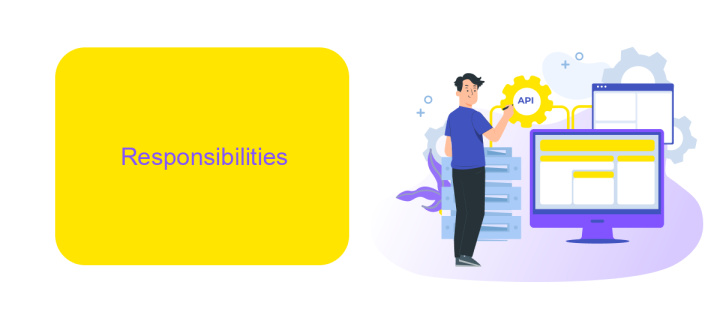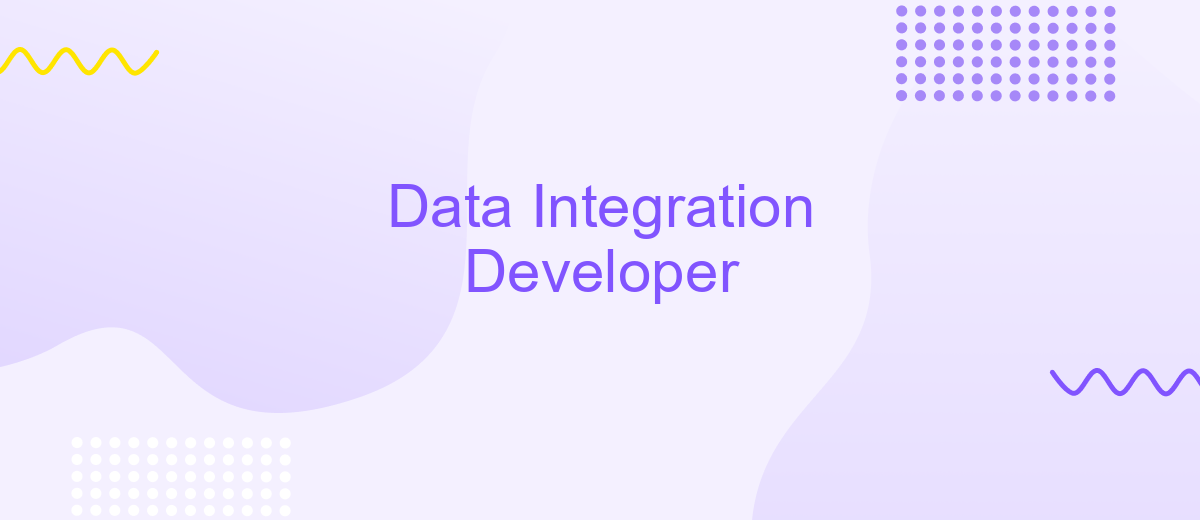Data Integration Developer
A Data Integration Developer plays a crucial role in modern businesses by ensuring seamless data flow across various systems and platforms. They design, implement, and manage data integration solutions that enable organizations to harness the power of their data, facilitating informed decision-making and operational efficiency. This article explores the key responsibilities, skills, and tools essential for a successful career in data integration development.
Introduction
In today's data-driven world, the role of a Data Integration Developer has become increasingly crucial. These professionals are responsible for ensuring seamless data flow between disparate systems, enabling organizations to leverage data for informed decision-making. By integrating various data sources, they help companies achieve a unified view of their information landscape.
- Designing and implementing data integration solutions
- Ensuring data accuracy and consistency
- Collaborating with data analysts and IT teams
- Utilizing tools and platforms like ApiX-Drive for efficient integration
- Monitoring and troubleshooting data workflows
One of the key tools in a Data Integration Developer's arsenal is ApiX-Drive, a platform that simplifies the integration process by connecting various applications and services without the need for extensive coding. This allows developers to focus on optimizing data flows and maintaining data integrity, ultimately contributing to the organization's overall efficiency and success.
Responsibilities

As a Data Integration Developer, you will be responsible for designing, developing, and maintaining data integration solutions. Your primary task will be to ensure seamless data flow between various systems, databases, and applications. You will work closely with stakeholders to understand their data requirements and translate them into technical specifications. Additionally, you will be tasked with troubleshooting and resolving data integration issues to maintain data integrity and performance.
Another key responsibility is to configure and optimize integration tools and platforms such as ApiX-Drive, which facilitate the automation and synchronization of data across multiple sources. You will be expected to monitor data integration processes to ensure they are running efficiently and securely. Keeping up-to-date with the latest industry trends and technologies to enhance data integration strategies will also be part of your role. Collaboration with other IT professionals to implement best practices and ensure compliance with data governance policies is essential.
Skills and Qualifications

A successful Data Integration Developer possesses a blend of technical skills, analytical abilities, and a keen eye for detail. They must be adept at understanding and transforming data from various sources into a cohesive and functional system, ensuring seamless data flow and integration.
- Proficiency in integration tools and platforms such as ApiX-Drive, Talend, and Informatica.
- Strong knowledge of SQL, databases, and data warehousing concepts.
- Experience with ETL (Extract, Transform, Load) processes and tools.
- Familiarity with APIs, web services, and data formats like JSON and XML.
- Ability to troubleshoot and resolve data discrepancies and integration issues.
- Good understanding of data governance, data quality, and data security principles.
- Excellent problem-solving skills and attention to detail.
- Strong communication skills to collaborate with cross-functional teams.
- Experience with cloud platforms and services such as AWS, Azure, or Google Cloud.
- Knowledge of programming languages like Python, Java, or C#.
In addition to these technical skills, a Data Integration Developer must stay updated with the latest trends and technologies in data integration. Utilizing services like ApiX-Drive can significantly streamline the integration process, allowing developers to focus on optimizing data flow and ensuring high-quality data management.
Education and Training

To become a proficient Data Integration Developer, a solid educational foundation is essential. Most professionals in this field hold at least a bachelor's degree in computer science, information technology, or a related discipline. This academic background provides a strong understanding of programming, database management, and systems analysis, which are crucial for data integration tasks.
In addition to formal education, hands-on experience is invaluable. Many developers gain practical skills through internships, co-op programs, or entry-level positions in IT departments. This real-world experience helps them understand the complexities of integrating various data sources and systems.
- Proficiency in programming languages such as SQL, Python, and Java.
- Experience with ETL (Extract, Transform, Load) tools and processes.
- Knowledge of data warehousing concepts and technologies.
- Familiarity with integration platforms like ApiX-Drive for automating data workflows.
Continuous learning is vital in this rapidly evolving field. Data Integration Developers should stay updated with the latest technologies, tools, and best practices through certifications, workshops, and online courses. This ongoing education ensures they can effectively manage and integrate data from diverse sources, enhancing organizational efficiency and decision-making.


Career Path
A career path for a Data Integration Developer typically begins with foundational skills in software development and database management. Early roles often involve working as a junior developer or database administrator, where one gains experience in data modeling, SQL, and basic ETL (Extract, Transform, Load) processes. As developers advance, they often take on more complex responsibilities, such as designing data integration solutions and managing data warehouses. Proficiency in tools like Apache Kafka, Talend, and ApiX-Drive can be particularly beneficial, as these platforms streamline the integration of various data sources and automate workflows.
With several years of experience, a Data Integration Developer can progress to senior or lead roles, overseeing integration projects and mentoring junior team members. Continuous learning is crucial in this field, as staying updated with the latest technologies and best practices is essential. Advanced positions may involve strategic planning and collaboration with other departments to ensure seamless data flow across the organization. Ultimately, a career in data integration can lead to roles such as Data Architect or Chief Data Officer, where one shapes the overall data strategy and infrastructure of a company.
FAQ
What does a Data Integration Developer do?
What skills are essential for a Data Integration Developer?
How do Data Integration Developers handle data quality issues?
What are some common challenges faced by Data Integration Developers?
How can automation tools assist in data integration tasks?
Time is the most valuable resource in today's business realities. By eliminating the routine from work processes, you will get more opportunities to implement the most daring plans and ideas. Choose – you can continue to waste time, money and nerves on inefficient solutions, or you can use ApiX-Drive, automating work processes and achieving results with minimal investment of money, effort and human resources.

